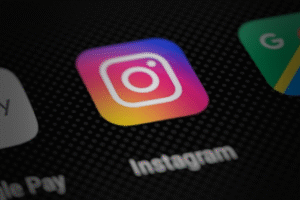
Meta Duplicate Content Penalties: 10M Accounts Removed in 2025
Meta Duplicate Content Penalties Redefine Creator Rules
Meta has introduced strict enforcement actions under its updated policy targeting content reuse on Facebook. The new rules, referred to as Meta duplicate content penalties, aim to protect original creators by removing impersonators and de-incentivizing unoriginal media.
This year, Meta reported the takedown of over 10 million fake profiles and enforcement against 500,000 accounts exhibiting spam or fake engagement behavior. These penalties specifically impact those reposting text, images, or videos without meaningful contribution.
Reduced Reach and Monetization for Repeat Offenders
Accounts that consistently violate the duplicate content policy will face consequences including reduced distribution of posts and removal from monetization programs. According to Meta, duplicate videos identified by the system will see limited reach, and original creators will be credited instead.
Additionally, Meta is testing a new feature that links back to original posts when duplicates are detected—further supporting rightful content attribution.
Tip: If your organization relies on original user engagement, tools like LiveChat can help manage interactions efficiently while staying policy-compliant.
AI-Generated Slop in the Crosshairs
Although Meta didn’t mention artificial intelligence explicitly, its updated content guidance suggests a response to low-effort AI-generated media—often called “AI slop.” These videos typically combine stock clips, still images, and synthetic narration with minimal originality.
Meta now discourages “stitching together clips” or simply adding watermarks to claim ownership. Instead, it promotes authentic storytelling and well-produced captions—implicitly warning against reliance on auto-generated content.
New Transparency Tools for Creators
To support content creators during this transition, Facebook’s Professional Dashboard offers post-level insights to show why certain posts may have limited reach. Creators can also monitor monetization risk through a new Support screen visible on their Page or professional profile.
This increased transparency comes as users criticize Meta’s over-reliance on automation for moderation. A petition with 30,000+ signatures calls for better human support, especially for wrongly disabled accounts affecting small business owners.
Scale of the Issue Reflects Growing Content Risks
Meta reported that 3% of monthly active users on Facebook are fake accounts. From January to March 2025 alone, over 1 billion fake accounts were actioned globally. This large-scale enforcement emphasizes the importance of platform integrity.
As AI tools and content automation grow more accessible, the Meta duplicate content penalties serve as a benchmark for how social platforms may regulate originality, engagement, and fair distribution in the coming years.
Do stricter penalties shift the balance between creativity and control in digital content?
Explore Business Solutions from Uttkrist and our Partners’, Pipedrive CRM and more uttkrist.com/explore


